DNA produces a metamaterial stronger and lighter than steel. Desiccants reduce HVAC system energy use. And fungi is turned into concrete.
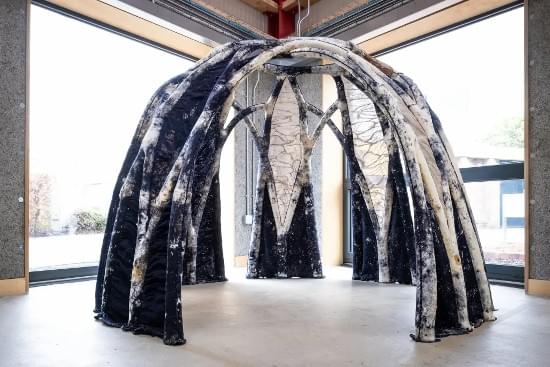


New breakthrough in material design will help football players, car occupants, and hospital patients.
A significant breakthrough in the field of protective gear has been made with the discovery that football players were unknowingly acquiring permanent brain damage from repeated head impacts throughout their professional careers. This realization triggered an urgent search for better head protection solutions. Among these innovations is nanofoam, a material found inside football helmets.
Thanks to mechanical and aerospace engineering associate professor Baoxing Xu at the University of Virginia and his research team, nanofoam just received a big upgrade and protective sports equipment could, too. This newly invented design integrates nanofoam with “non-wetting ionized liquid,” a form of water that Xu and his research team now know blends perfectly with nanofoam to create a liquid cushion. This versatile and responsive material will give better protection to athletes and is promising for use in protecting car occupants and aiding hospital patients using wearable medical devices.
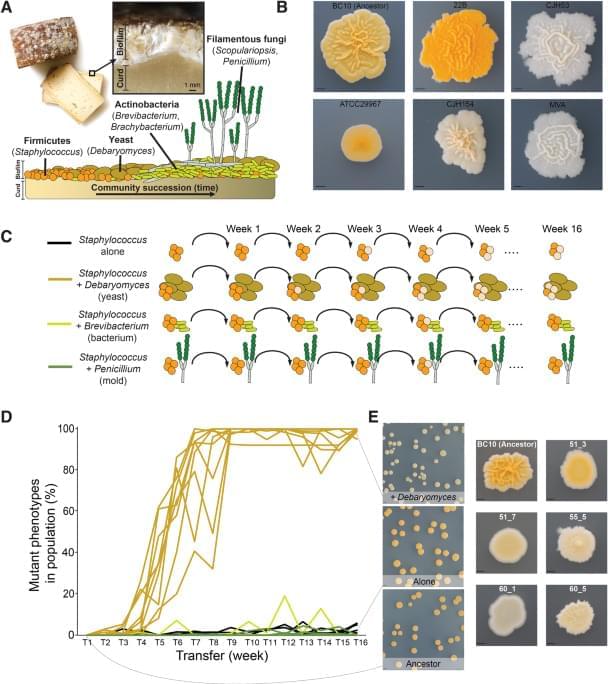
Experimental studies of microbial evolution have largely focused on monocultures of model organisms, but most microbes live in communities where interactions with other species may impact rates and modes of evolution. Using the cheese rind model microbial community, we determined how species interactions shape the evolution of the widespread food-and animal-associated bacterium Staphylococcus xylosus. We evolved S. xylosus for 450 generations alone or in co-culture with one of three microbes: the yeast Debaryomyces hansenii, the bacterium Brevibacterium aurantiacum, and the mold Penicillium solitum. We used the frequency of colony morphology mutants (pigment and colony texture phenotypes) and whole-genome sequencing of isolates to quantify phenotypic and genomic evolution. The yeast D. hansenii strongly promoted diversification of S. xylosus.
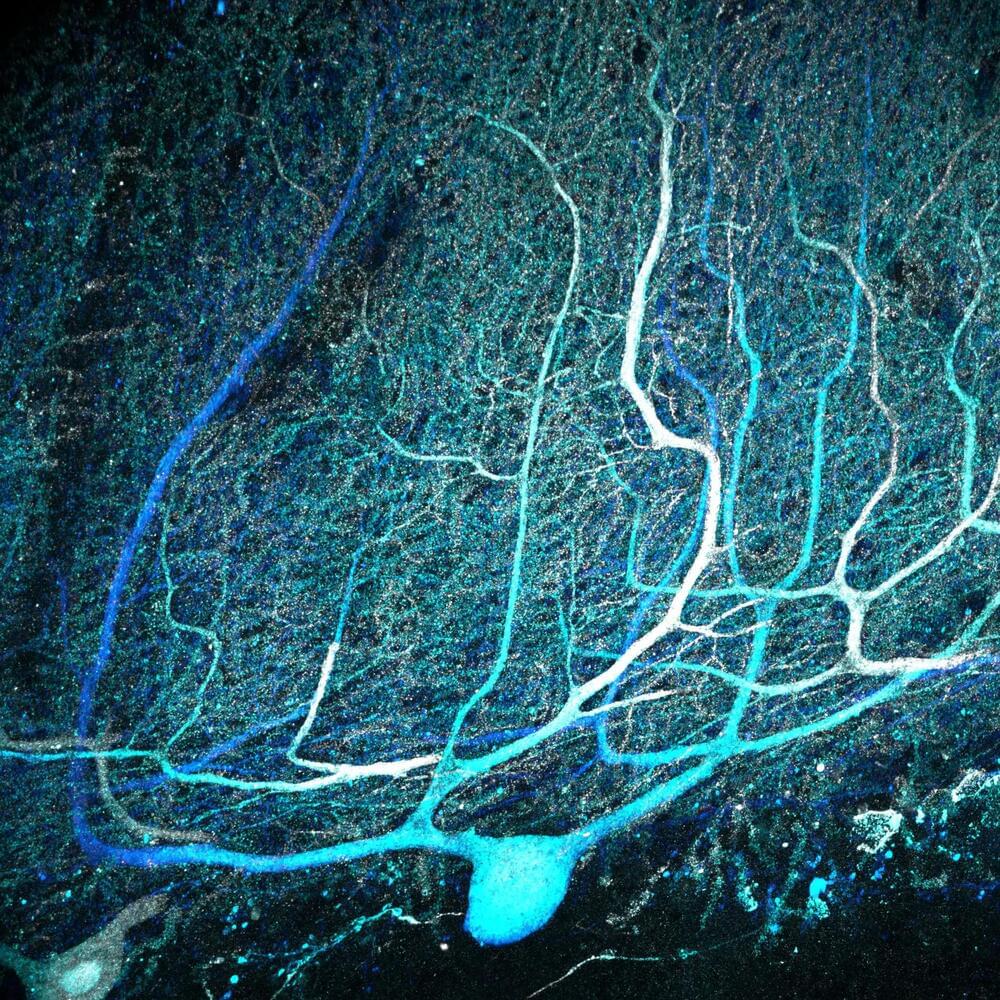
Images of thousands of Purkinje cells reveal that almost all human cells have multiple primary dendrites. These structures, when observed in mice, facilitate connections with multiple climbing fibers originating from the brain stem.
In 1906, the Spanish researcher Santiago Ramón y Cajal received the Nobel Prize for his trailblazing exploration of the microscopic structures of the brain. His renowned illustrations of Purkinje cells within the cerebellum depict a forest of neuron structures, with multiple large branches sprouting from the cell body and splitting into beautiful, leaf-like patterns.
Despite these early portrayals showing multiple dendrites branching out from the cell body, the enduring consensus among neuroscientists is that Purkinje cells possess only a single main dendrite that forms a connection with a lone climbing fiber originating from the brain stem. However, a recent study from the University of Chicago, recently published in the journal Science, reveals that Cajal’s sketches were indeed accurate — practically all Purkinje cells in the human cerebellum have multiple primary dendrites.

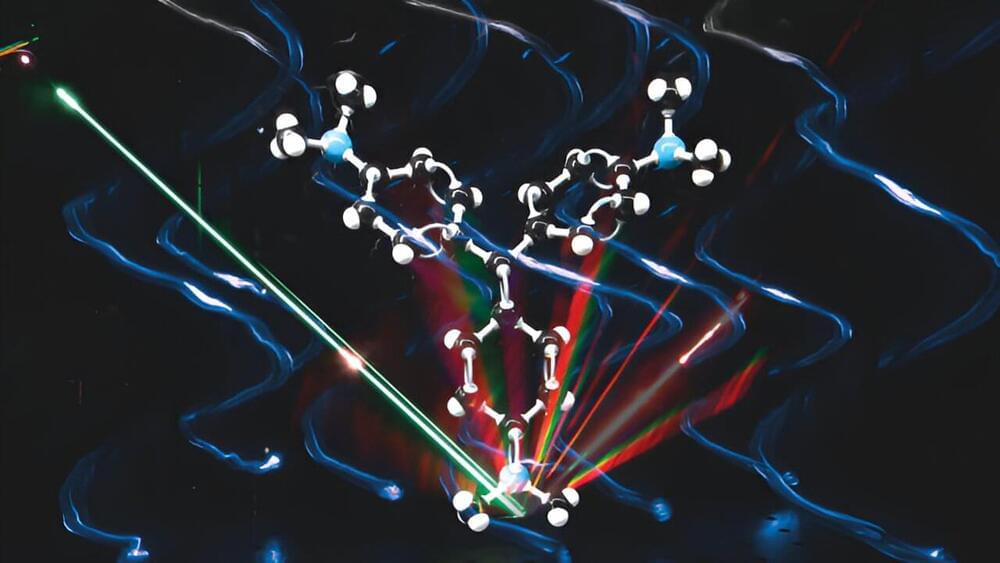
Using conventional testing techniques, it can be challenging—sometimes impossible—to detect harmful contaminants such as nano-plastics, air pollutants and microbes in living organisms and natural materials. These contaminants are sometimes found in such tiny quantities that tests are unable to reliably pick them up.
This may soon change, however. Emerging nanotechnology (based on a “twisted” state of light) promises to make it easier to identify the chemical composition of impurities and their geometrical shape in samples of air, liquid and live tissue.
An international team of scientists led by physicists at the University of Bath is contributing toward this technology, which may pave the way to new environmental monitoring methods and advanced medicines. Their work is published in the journal Advanced Materials.
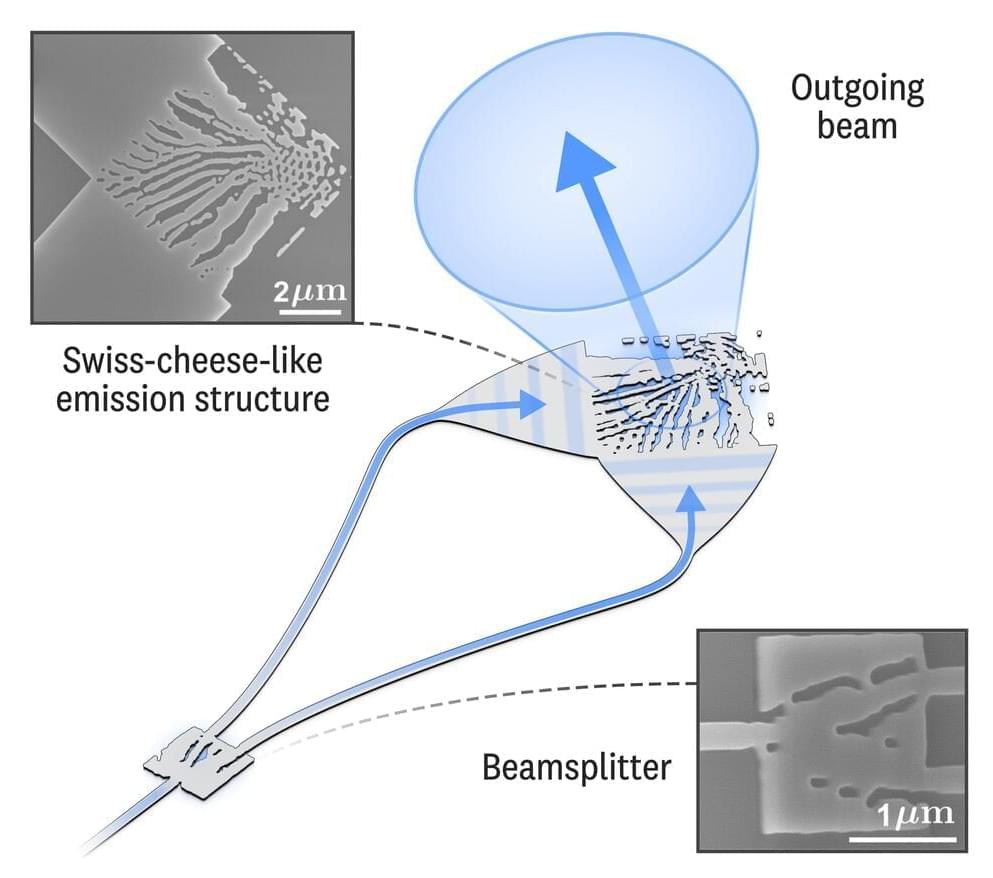
Researchers at the National Institute of Standards and Technology (NIST) have devised a photonic circuit on a chip that transforms a single incoming beam of laser light into a panoply of new beams, each with a host of different optical properties.
The newly generated beams—which retain the frequency of the original beam—simultaneously exit the circuit at different locations along the chip. That allows scientists and engineers to select the specific characteristics of one or more beams needed for a particular application.
Precision shaping and controlling beams of visible light are critical for diagnosing and studying human diseases, trapping atoms that form the basis of the world’s most accurate clocks, quantum computing, and many other quantum-based technologies.
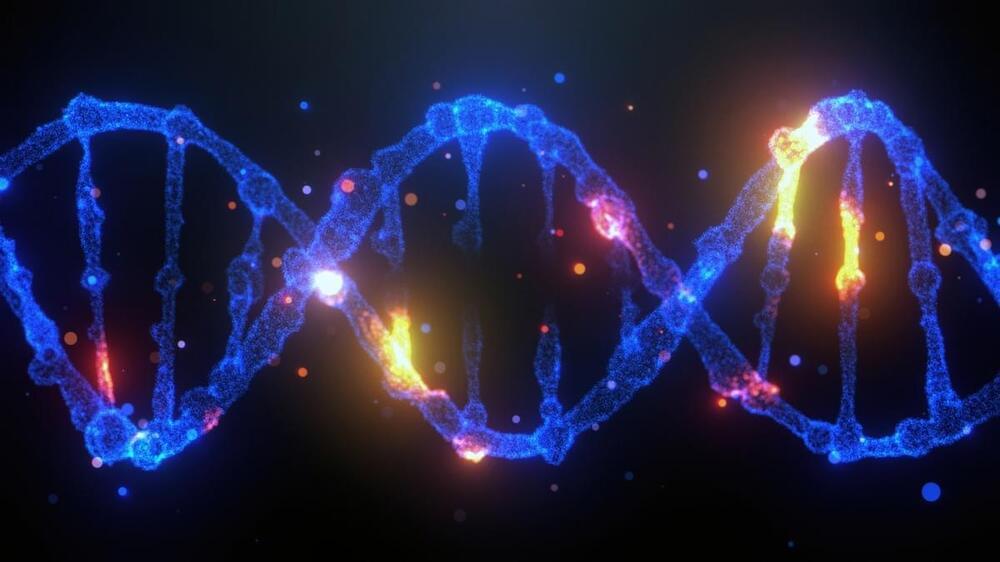
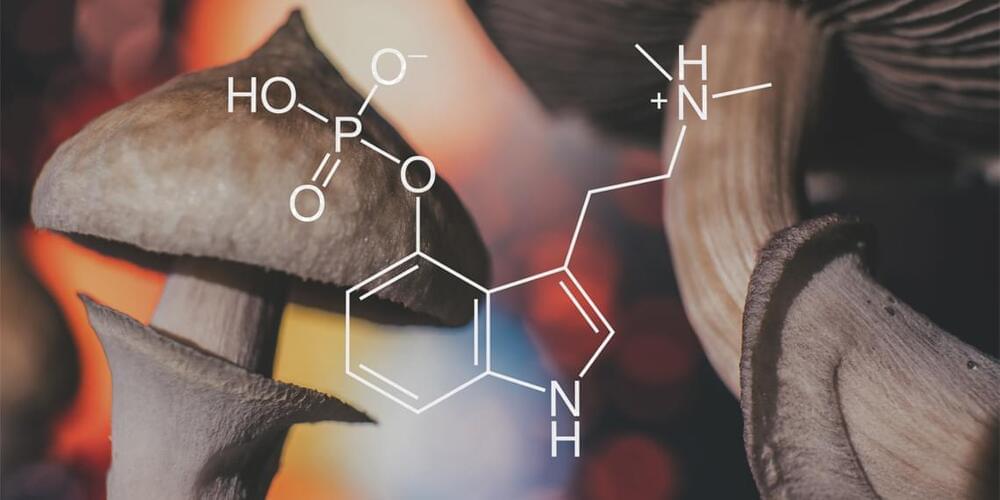
Psilocybin has antidepressant-like effects and can improve cognitive function in a rat model of depression induced by chronic stress, according to new research published in Psychedelic Medicine. The findings provide new insights into the potential therapeutic applications of psychedelic substances and highlight the need for further research in this area to fully comprehend the underlying mechanisms.
Psilocybin is a naturally occurring psychedelic compound found in certain species of mushrooms, often referred to as “magic mushrooms” or “shrooms.” In recent years, there has been a growing interest in studying psilocybin and other psychedelics for their potential therapeutic effects. Psychedelics have shown promising rapid and persistent antidepressant effects in humans and animals. However, the exact mechanism behind these effects is not fully understood.
To investigate the cellular and molecular mechanisms responsible for the antidepressant effects of psychedelics, the researchers used an appropriate animal model of depression. They chose a chronic stress-based model for greater translational value, as chronic stress is known to be a significant factor in depression. They specifically focused on female rats, as women are more susceptible to depression than men.
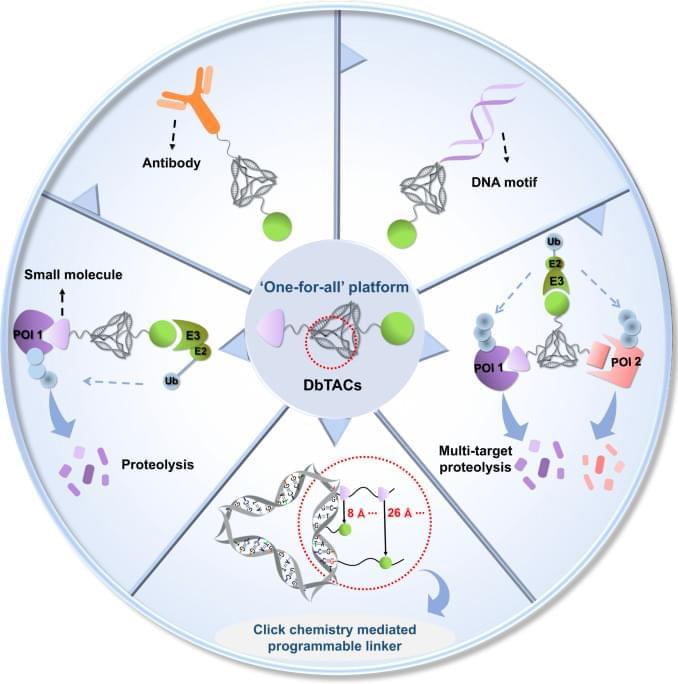
The lack of a universal platform for PROTAC development remains a major bottleneck. Here, the authors report modular DNA framework-based PROTACs (DbTACs) that enable precise control of the linker length and selective degradation of diverse targets in different cellular compartments using various warheads.